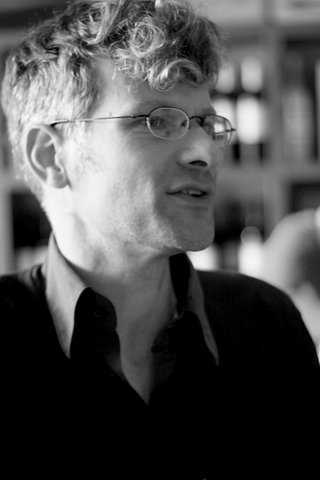Translator Steph Morris talks Europe and translation
How did you get into translating and how has your career unfolded?
I’d always written in one form or another, so after I moved to Berlin in 2001 and learned German, I began translating. I’d done a lot of creative writing workshops and could string a halfway decent sentence together, compensating for any German-language proficiency I still lacked. I joined networks of commercial translators and soon scooped up all the arty, obscure, left-field, intellectual work no-one else wanted. I later declared a moratorium on visual art texts but still translate for the Pina Bausch Foundation and Tanztheater Wuppertal, for the Swiss contemporary jazz label Intakt, and other high-brow institutions. My first degree was in fine art, and I managed to turn this potentially disadvantageous qualification into a USP. Now I’d actually say creativity is an essential qualification. That said, in the early days, to prove myself, I sat the rigorous Diploma in Translation. I had joined a class to prepare for it, which I was later to teach. Workshops and peer feedback have been crucial to my development. I now run a monthly workshop in London and I hope to get back into teaching translation soon.
What have been your most enjoyable translation projects?
Given the above, it’s been a pleasure to translate novels by Martin Suter, well-crafted stories without avant-garde pretentions. Otherwise the most enjoyable job has been my latest, Brigitte Reimann’s diaries, Vol. II. It’s rare to feel that people urgently need to read the text you’re translating, that it will provide unique insights and change their lives. This is stuff you just couldn’t know without reading German, about what it was like to be a woman, an artist, a citizen, in 1960s East Germany.
What advice or tips would you give to new translators?
You need confidence, both interpersonally, to assert yourself as a freelancer, and creatively, to assert your interpretations of literary texts and the language you’ve chosen to recreate them in. You need lateral, creative thinking as well as its opposite, straight-up precision, and a lot of brains in general, which begs the question why you would do such an illrewarded job – so make sure you love it!
Does being European form part of your identity? What does it mean to you?
I’m ‘from’ a continent, not a country. I’ve spent around a quarter of my life in Berlin, and I have a North-Rhein Westphalia thing going on, with the Europäisches ÜbersetzerKollegium in Straelen and frequent visits to Wuppertal. I’ve also spent time in Granada, Spain. I am ‘from’ those places in proportion to the amount of time I’ve spent there. I don’t have one national identity any more than I have one regional identity (part Midlands, part London, pinch of Yorkshire and Somerset). I get Fernweh; I feel trapped on this island and relieved to be on the mainland, free to roam the Schengen zone. Then I miss the island.
Does this European identity come into play in your translation work?
I’m at home in the German writing I translate, or transported to a place I’m curious to visit, and I hope to make my readers at home in my English translations, or make them want to travel there.
You are often in Europe for your travels. How do you view Europe now and has your view of it changed?
I feel quite ‘use it or lose it’ about mainland Europe now – feeling the need to visit often. I grew up with the iron curtain drawn, in the era before cheap flights, so I’ll adapt to any, ahem, changes. Being a Brit on the continent has become awkward for new reasons. We’ve embarrassed ourselves, but embarrassment is the least of it; I’ve actually heard people of colour in Spain discussing whether it’s safe to come here any more. Still, I’ve been warmed that old friends and colleagues in Germany and throughout the continent have made me feel welcome and at home. There’s a sense our connections are more important than ever.
Photo credit © Ebba Drolshagen


